Sanatan Dharma Hindu Temple celebrates its fourth anniversary this year. However, little do people know that a Ugandan refugee was behind the establishment of Cardiff’s largest Hindu temple.
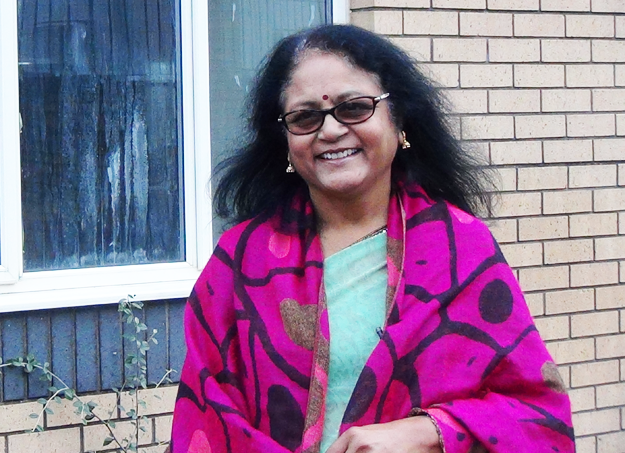
It was five degrees outside, and she was shivering. In only a 20kg baggage allowance she had stuffed everything she would need to start living afresh except her jacket. Nobody told her that it would be cold in London.
She checked her bag and found £50 which was the maximum currency Ugandan Government had allowed their refugees to carry on leaving the country.
“I was looking around the Heathrow airport in despair when a staff of Red Cross nudged me and gave a jacket,” says Vimla Patel recalling her entry into the UK 44-years ago. Little then did she know that years later she would be playing an instrumental part in establishing one of the first Hindu temples in the city.
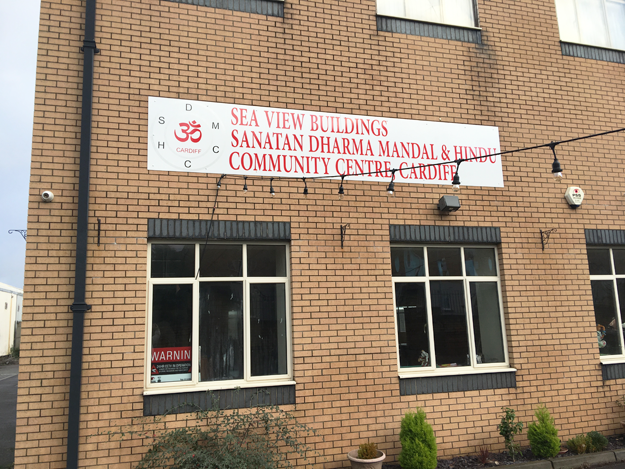
Situated within a large campus on Lewis Road, the Sanatan Dharma Mandir (temple) evokes a sense of harmony graciously complimenting its magnanimity. The temple has become a religious hub for Hindus in and around Cardiff who gather here for various weekly programs and festival celebrations. Vimla says: “We organize more than ten big festivals every year in the premises hosting more than 200 guests at a time. From cooking to cleaning to organizing, all our operations are handled by a team of volunteers who I, along with a few board members supervise.”
Entering the UK as a refugee
The journey to this platform, however, was not all that easy. In the year 1972, Asians were expelled from Uganda being accused of hoarding wealth and goods to the detriment of indigenous Ugandans. The Government had given them only 90 days to exit the country, and it was during this time that Vimla along with her husband had migrated to the UK.
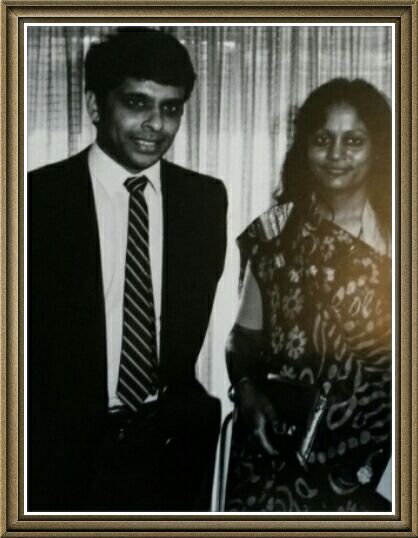
“I was 20, and Harish (her husband) was 23 when we received the news,” she says. “Harish had a British passport so he was busy processing documents for me and our family’s entry into the UK. It was terrifying as we did not know what our future would hold. All our relatives began boarding random flights, whichever would help them escape.”
In London, the couple lived in a refugee camp for three weeks which was a large hall with curtained partitions. They were given only £2.50 a day to spend. Eventually, Vimla began feeling homesick. She says: “I craved for Indian home-cooked food. I was tired of eating beans and toast every day, so I ended up living on a fruit diet. For three weeks, fresh fruit and milk were all I had.” To her surprise, the very next day after arriving into London the camp doctors told her that she was expecting a child. “We didn’t have a job, we didn’t have a place to stay, we didn’t have proper food to eat and to top it all I was pregnant. Nothing made sense to me, and I was just lost.”
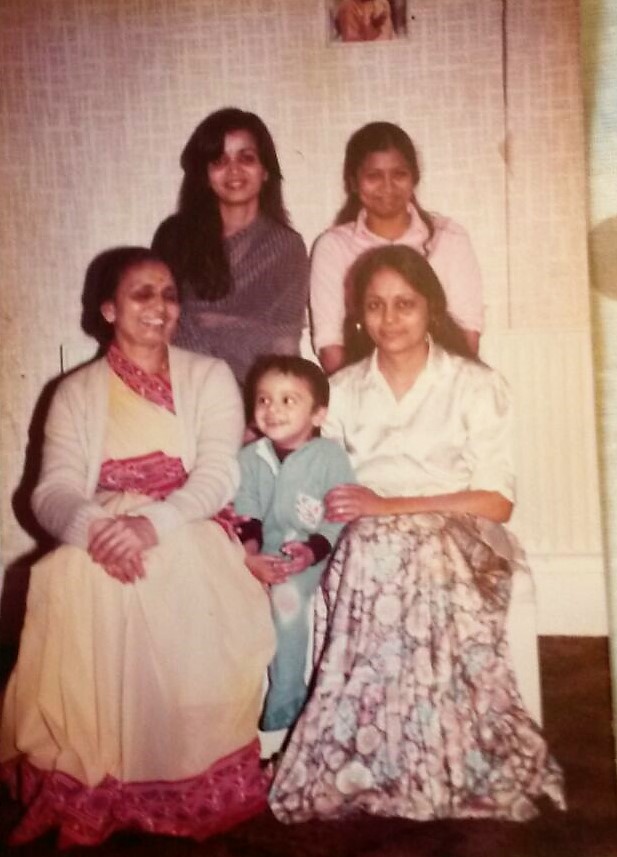
The couple shortly moved in with a relative in Cardiff and started living. From doing odd jobs to raising three children and finally entering mainstream lines of work, Vimla has seen the world from the worst to the best. Amidst all of this, the lady fostered a dream to build a temple for Hindus in Cardiff as she did not want others to go through tough times as she did.
Temple formation
She remembers how during her childhood her parents would insist on maintaining religious principles. They often visited temples and Hinduism was an important part of her life. In times of difficulty, she mentions that it was this faith that she had inculcated over years that gave her all strength and showed her the right direction.
“It was 1985, I think, that we decided to hire a hall at 28 Parade Road, Cardiff to host our weekly Sunday programs and other festivals,” says Vimla. “Before that we would organize our small satsangs (religious programs) at the homes of our Hindu congregation members.”
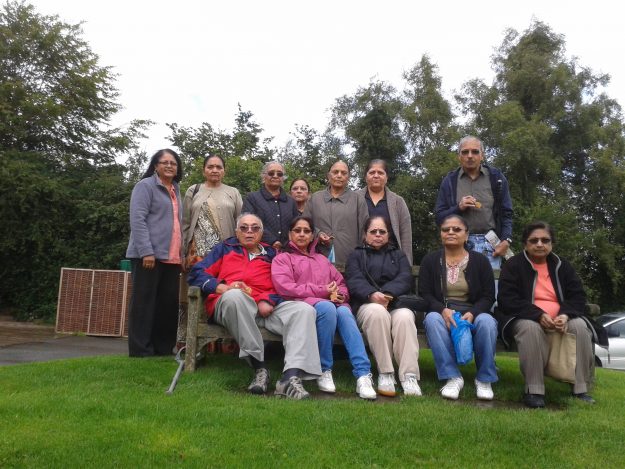
Once the weekly programs at the community center became popular, the group grew bigger, and it gradually became harder to accommodate everyone at a time. Hence, they decided to purchase a property to build their temple. “I remember visiting various Hindu families around Cardiff with a bowl in hand seeking donations. There were a few rejections but overall the community was quite supportive.” With the help of grants from the temple board members and the community, they could mortgage a property at 22 Parade Road. History was being created brick by brick, and it was finally in 1988 that the first Hindu temple in Cardiff was built.
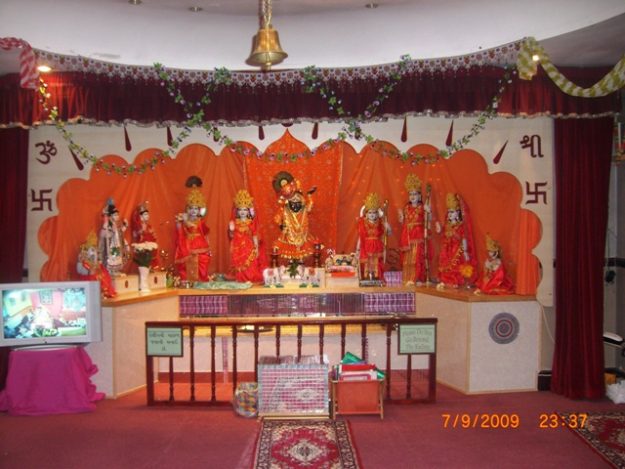
Later, with the support of their congregation members, they shifted into a bigger property at Lewis Road which is where the temple is currently situated.
Nurturing the future
Today, two of Vimla’s grandchildren learn how to play bhajans (devotional songs) on the harmonium (a keyboard instrument like an organ), along with others in the children’s religious class hosted by the temple. She sings it with them correcting their pronunciations throughout. “Our bhajans have such enchanting lyrics that, if sung correctly, instill devotion in anyone who hears them,” she explains. “They (children) are our future. They have the responsibility of keeping our culture alive, which would only be possible if we show them the right direction.” Pointing towards a tree outside the window, she says, “You see this tree? This tree is healthy and large because it has strong roots, a strong foundation. Our children are like sprouting seeds. If we don’t water them timely, expose them to adequate sunlight and take care of them, they wouldn’t develop strong roots and wouldn’t flourish.”
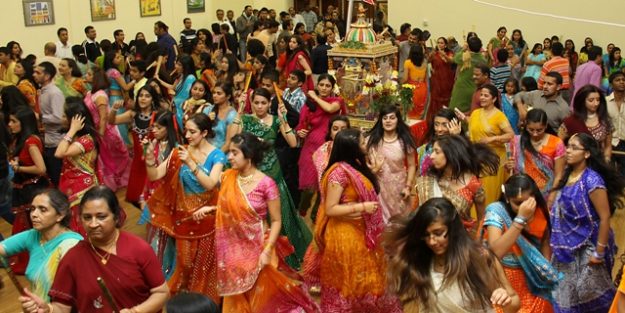
Presently, the temple also hosts various meditation camps, religious workshops, and all main Hindu festivals on a large scale. This Diwali, the temple also introduced a series of Youth Cultivation Programs wherein special religious classes in English are organized for those who are born and raised in the UK. “People born here have not studied Indian languages. Those who have studied don’t know their actual meaning. So, it was necessary to bridge the gap, and I am glad this year finally we have been able to do that by hosting dedicated youth religious programs. Through our programs, we want to educate young people and encourage them to carry our sacred ideals and beliefs through to our future generations, making this world a better place to live.”
